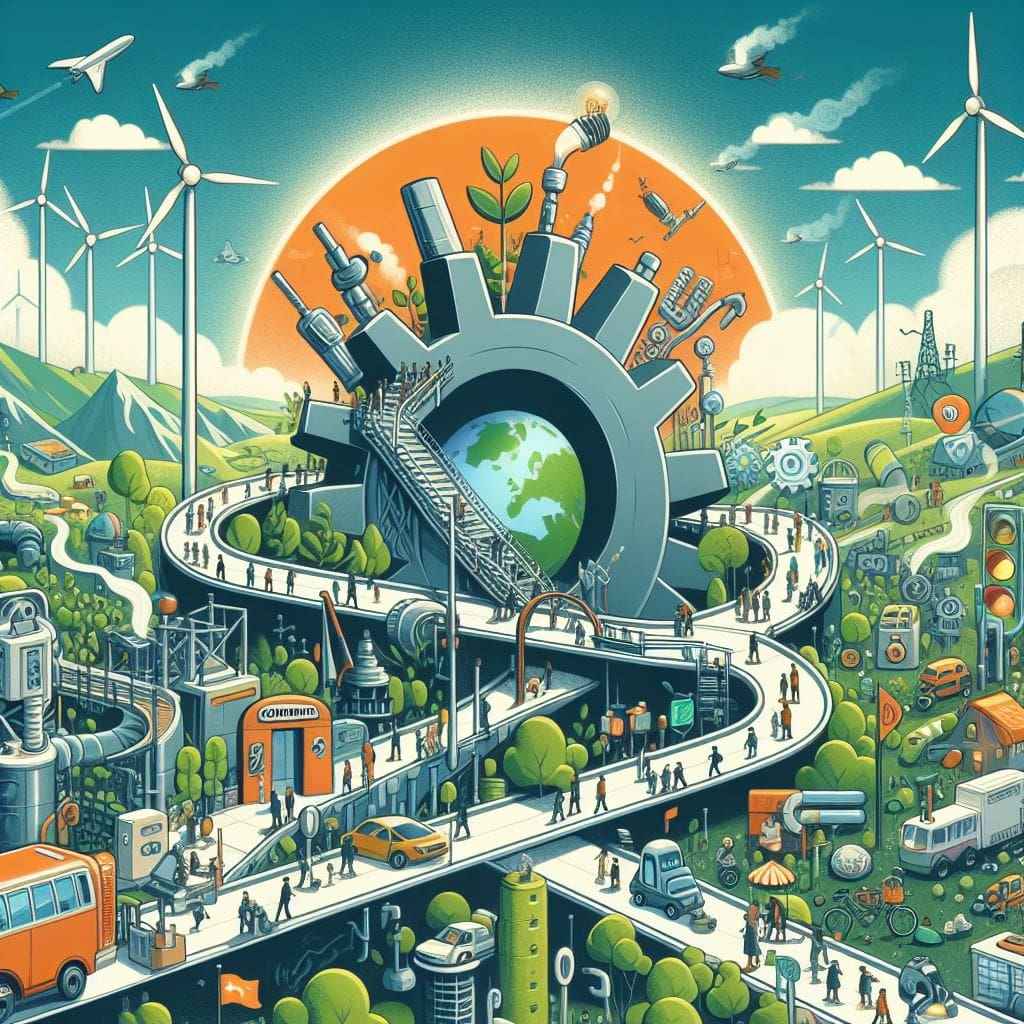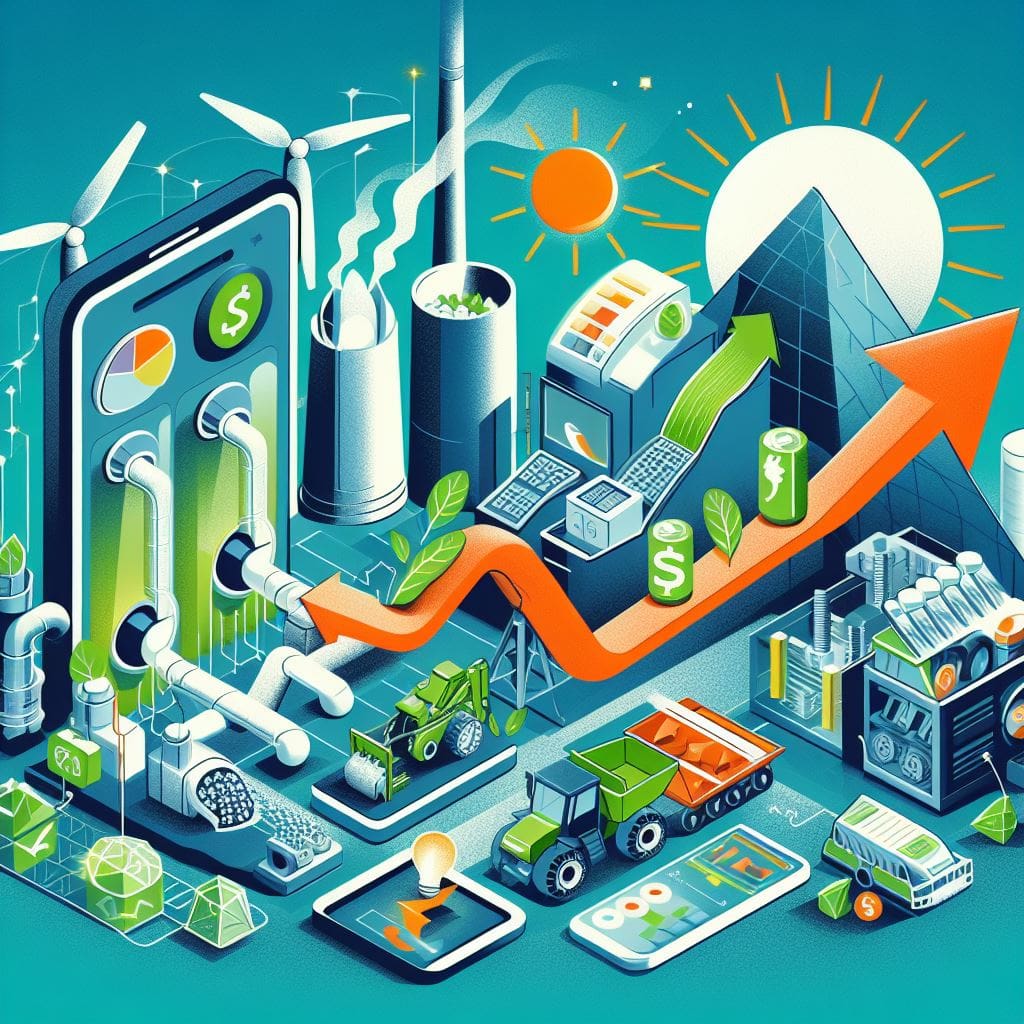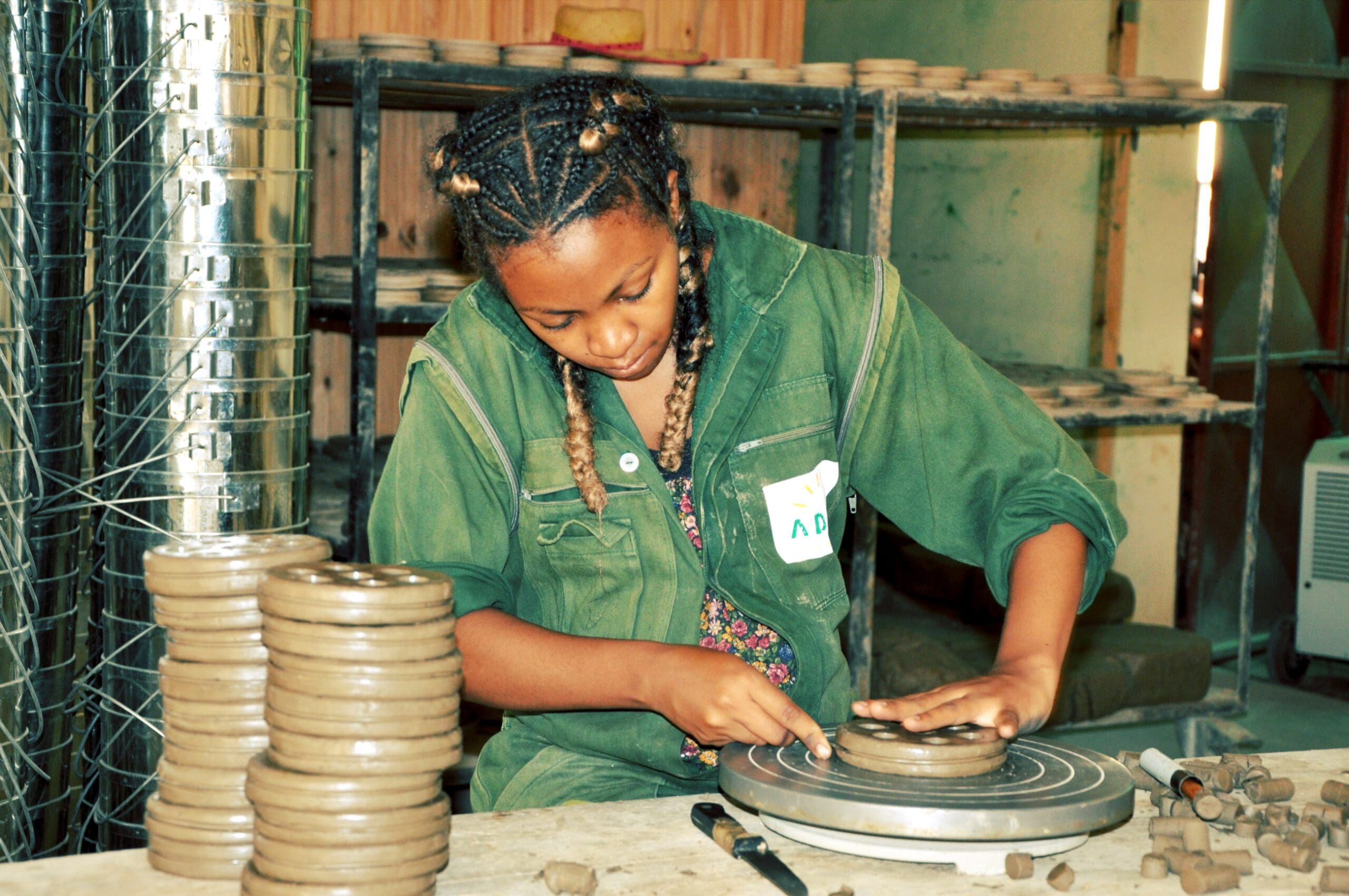Why technology will not save us
Lou Messerli is a Master's student in Sustainable Societies and Social Change at the University of Geneva. She is completing a ten-month internship at ADES, focusing on the topics of impact measurement and skills transfer. For the ADES blog, she writes about Solutionism: Why technology will not save us.

"If a society cannot cope with the depletion of its resources, the really interesting questions concern the society, not the resource. What structural, political, ideological or economic factors in society have prevented an appropriate response?"
This quote from Joseph A. Tainter, an American anthropologist and historian, raises the question of why, despite major reports and annual climate analyses, we are not taking proactive, preventive and, above all, binding measures to move us forward in climate policy? In the midst of global challenges in dealing with climate change, however, the work of the non-profit organisation ADES in Madagascar offers an encouraging insight: ADES is pursuing the ambitious goal of protecting the environment and habitats, reducing deforestation and fighting poverty at the same time.

In this blog, I would like to highlight an important factor that I believe could explain our collective lethargy towards the climate challenge: the concept of relative decoupling. This term refers to the attempt to use technology to decouple gross domestic product (GDP) growth from resource consumption (Unmüsssig, Sachs and Fatheuer, 2012). It is a continuation of "business as usual", albeit more efficient and deeply interwoven with the conviction that innovation and technology play an important role instead of government bans and regulations. The work of ADES provides an interesting contrast, as it also engages with technological innovation in Madagascar, but shows that the true path to sustainability involves profound social change. While solutionism merely relies on the belief in technological panaceas and avoids the challenges and problems of climate change, ADES makes it clear that it is not just about implementing technology, but also about integrating these solutions into the social and ecological context.

The pitfalls of techno-solutionism and Jevon's paradox
The belief in technology as a saviour, so-called "(techno-)solutionism", is the idea that constant technological progress provides all the answers without questioning what caused the problem. It is the economic assumption that growth and innovation can compensate for environmental degradation (Morozov, 2013). However, this does not solve our current pollution problems, it does not change our behaviour, our values or our consumption. This perspective is neither realistic, sustainable, desirable nor feasible in today's context. On the contrary, techno-optimism, which believes that innovation and technological progress can automatically solve global environmental problems, leads to a dangerous illusion.
The concept of the Jevons paradox emphasises this: The Jevons paradox, or rebound effect, states that increases in efficiency in resource use often lead to higher resource consumption rather than savings. In a capitalist system, efficiency gains are often converted into lower costs, which leads to increased consumption and resource exploitation. Unmüssig et al. claim that the first answer to achieving an absolute reduction in resource consumption is efficiency - through a more efficient use of materials and energy. I argue against this because the Jevons paradox and past experience have shown that this has not led to a reduction in resource utilisation. Let's take the origin of the Jevons paradox in Jevon's 1865 book as an example: After the introduction of James Watt's coal-fuelled steam engine, the consumption of coal in England exploded. Watt's innovation made coal a cheaper source of energy and led to an increase in coal consumption in transport and other industries (Jevons, 1866). Efficiency gains can lead to lower prices, which can result in increased consumption or regional displacement of polluting activities, negating the benefits of dematerialisation (Loiseau, 2016). Technological improvements are therefore necessary but not sufficient to achieve true sustainability.

ADES as a counter-design
ADES represents a convincing alternative to solutionism by not only focussing on technological innovations, but also embedding them in a broader context of sustainable development. In Madagascar, a country characterised by enormous wood consumption, ADES is actively combating deforestation. By producing and distributing green clay cookers, which reduce wood consumption by 50 to 80 per cent, the organisation not only creates efficient cooking methods, but also promotes the conservation of forests and reduces greenhouse gas emissions. Ades demonstrates that successful initiatives must be based on a deep connection with community needs, local values and a comprehensive understanding of the environment. The green clay cookers are not only a technological solution, but also a tool to improve the quality of life and economic situation of the population. ADES not only has over two decades of presence in Madagascar, but also a continuous expansion that indicates a growing number of employees and integration into the Malagasy industrial sector. The organisation is committed to protecting the environment and empowering the local population.

Further challenges and conclusion
There are many reasons why a sole belief in technological solutions is unrealistic without wanting to change society: The idea of geoengineering, for example, although technically possible, epitomises the short-sightedness of technological solutions and neglects the urgency of climate change. Time does not allow us to wait for innovations that do not yet exist. In addition, our planet's natural resources are limited and technological advances cannot remove these limits. The finite availability of resources, combined with the negative impacts of their extraction and use, poses a huge challenge to the technology-centred approach. For all these reasons, a techno-solutionist approach risks masking the symptoms of climate change rather than tackling the root causes. If technological progress is utilised in the same way as before and we do not give it a clearly different function than that of short-term economic growth and a further increase in consumption, we will continue to rigorously postpone the solution to the problems into the future (Göpel, 2020).
ADES emphasises that the time for immediate action is pressing and that technological breakthroughs cannot wait. Successful environmental protection must not only rely on technological progress, but also on a deep connection with the needs of the community, sustainable value creation and long-term environmental protection goals. With the ambitious goal of producing and distributing up to 160,000 solar cookers and clay-based energy-saving cookers per year by 2030, ADES is pursuing a forward-looking strategy. Through increased industrialisation and the use of sustainable fuels, the organisation not only wants to protect the environment, but also actively contribute to economic development. The success of ADES lies not only in the technology itself, but in the holistic approach that combines environmental protection, social empowerment and economic progress. This is in clear contrast to pure techno-solutionism, which ignores the natural and social context and relies on the sole power of technological solutions.
Sources:
- Donella Meadows et al, (1972), "The Limits to Growth, A Report for the Club of Rome's Project on the
Predicament of Mankind", The Club of Rome, Universe Books, New York
https://www.donellameadows.org/wp-content/userfiles/Limits-to-Growth-digital-scan-version.pdf
- Goodreads, Joseph A. Tainter, Quotes, Accessed 25.10.2023,
https://www.goodreads.com/author/quotes/20895.Joseph_A_Tainter
- Loiseau, Eleonore, et al. "Green economy and related concepts : An overview." Journal of cleaner
production 139 (2016): 361 - 371 - Maya Göpel (2020), Rethinking our world, Ulllstein
- Morozov Evgeny, (2013) To save everything, click here : the folly of technological solutionism. First
edition Edition. New York 2013, ISBN 978-1-61039-138-2. - Rockström, Johan, et al. "Planetary Boundaries: Exploring the Safe Operating Space for Humanity."
Ecology and Society, vol. 14, no. 2, 2009. JSTOR, http://www.jstor.org/stable/26268316. - Unmüssig, Barbara, Wolfgang Sachs, and Thomas Fatheuer. "Critique of the green economy."
Publication series on ecology. Berlin: Heinrich Böll Foundation (2012). - William Stanley Jevons: The Coal Question. Macmillan and Co, London 1866

